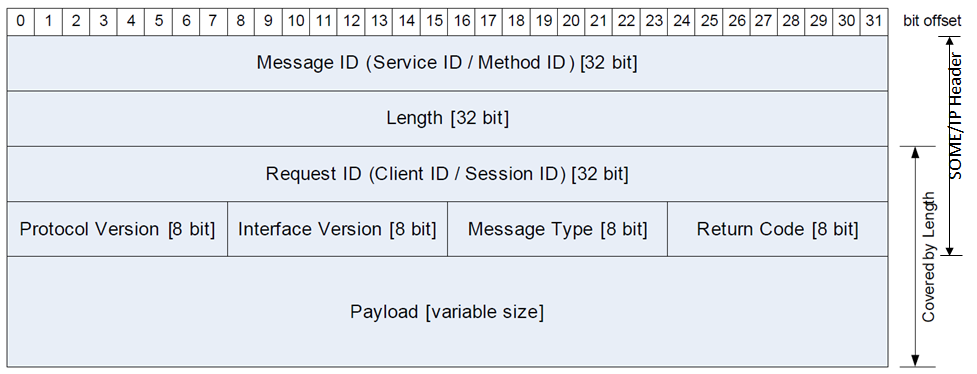1
2
3
4
5
6
7
8
9
10
11
12
13
14
15
16
17
18
19
20
21
22
23
24
25
26
27
28
29
30
31
32
33
34
35
36
37
38
39
40
41
42
43
44
45
46
47
48
49
50
51
52
53
54
55
56
57
58
59
60
61
62
63
64
65
66
67
68
69
70
71
72
73
74
75
76
77
78
79
80
81
82
83
84
85
86
87
88
89
90
91
92
93
94
95
96
97
98
99
100
101
102
103
104
105
106
107
108
109
110
111
112
113
114
115
116
117
118
119
120
121
122
123
124
125
126
127
128
129
130
131
132
133
134
| public partial class BinaryUtils
{
#region private methods
private static void WriteInt16(short value, byte[] targetBytes, ref int index, bool isBigEndian)
{
if (isBigEndian)
BinaryPrimitives.WriteInt16BigEndian(targetBytes.AsSpan(index), value);
else
BinaryPrimitives.WriteInt16LittleEndian(targetBytes.AsSpan(index), value);
index += sizeof(short);
}
private static void WriteUInt16(ushort value, byte[] targetBytes, ref int index, bool isBigEndian)
{
if (isBigEndian)
BinaryPrimitives.WriteUInt16BigEndian(targetBytes.AsSpan(index), value);
else
BinaryPrimitives.WriteUInt16LittleEndian(targetBytes.AsSpan(index), value);
index += sizeof(ushort);
}
private static void WriteInt32(int value, byte[] targetBytes, ref int index, bool isBigEndian)
{
if (isBigEndian)
BinaryPrimitives.WriteInt32BigEndian(targetBytes.AsSpan(index), value);
else
BinaryPrimitives.WriteInt32LittleEndian(targetBytes.AsSpan(index), value);
index += sizeof(int);
}
private static void UWriteInt32(uint value, byte[] targetBytes, ref int index, bool isBigEndian)
{
if (isBigEndian)
BinaryPrimitives.WriteUInt32BigEndian(targetBytes.AsSpan(index), value);
else
BinaryPrimitives.WriteUInt32LittleEndian(targetBytes.AsSpan(index), value);
index += sizeof(uint);
}
private static void WriteInt64(long value, byte[] targetBytes, ref int index, bool isBigEndian)
{
if (isBigEndian)
BinaryPrimitives.WriteInt64BigEndian(targetBytes.AsSpan(index), value);
else
BinaryPrimitives.WriteInt64LittleEndian(targetBytes.AsSpan(index), value);
index += sizeof(long);
}
private static void UWriteInt64(ulong value, byte[] targetBytes, ref int index, bool isBigEndian)
{
if (isBigEndian)
BinaryPrimitives.WriteUInt64BigEndian(targetBytes.AsSpan(index), value);
else
BinaryPrimitives.WriteUInt64LittleEndian(targetBytes.AsSpan(index), value);
index += sizeof(ulong);
}
#endregion
public static void Write<T>(T obj, byte[] targetBytes, ref int index, bool isBigEndian) where T : IPackable<T>, new()
{
var data1 = obj.Serialize(isBigEndian);
data1.CopyTo(targetBytes, index);
index += data1.Length;
}
public static void Write<T>(T[] obj, byte[] targetBytes, ref int index, bool isBigEndian) where T : IPackable<T>, new()
{
foreach (var item in obj)
{
var data1 = item.Serialize(isBigEndian);
data1.CopyTo(targetBytes, index);
index += data1.Length;
}
}
public static void Write(bool value, byte[] targetBytes, ref int index, bool isBigEndian) =>
targetBytes[index++] = value ? FlagTrue : FlagFalse;
public static void Write(byte value, byte[] targetBytes, ref int index, bool isBigEndian) => targetBytes[index++] = value;
public static void Write(sbyte value, byte[] targetBytes, ref int index, bool isBigEndian) => targetBytes[index++] = (byte)value;
public static void Write(char value, byte[] targetBytes, ref int index, bool isBigEndian) =>
WriteInt16((short)value, targetBytes, ref index, isBigEndian);
public static void Write(short value, byte[] targetBytes, ref int index, bool isBigEndian) =>
WriteInt16(value, targetBytes, ref index, isBigEndian);
public static void Write(ushort value, byte[] targetBytes, ref int index, bool isBigEndian) =>
WriteInt16((short)value, targetBytes, ref index, isBigEndian);
public static void Write(int value, byte[] targetBytes, ref int index, bool isBigEndian) =>
WriteInt32(value, targetBytes, ref index, isBigEndian);
public static void Write(uint value, byte[] targetBytes, ref int index, bool isBigEndian) =>
WriteInt32((int)value, targetBytes, ref index, isBigEndian);
public static void Write(long value, byte[] targetBytes, ref int index, bool isBigEndian) =>
WriteInt64(value, targetBytes, ref index, isBigEndian);
public static void Write(ulong value, byte[] targetBytes, ref int index, bool isBigEndian) =>
WriteInt64((long)value, targetBytes, ref index, isBigEndian);
public static void Write(float value, byte[] targetBytes, ref int index, bool isBigEndian)
{
unsafe
{
WriteInt32(*(int*)&value, targetBytes, ref index, isBigEndian);
}
}
public static void Write(double value, byte[] targetBytes, ref int index, bool isBigEndian)
{
unsafe
{
WriteInt64(*(long*)&value, targetBytes, ref index, isBigEndian);
}
}
public static void Write(byte[] value, byte[] targetBytes,ref int index, bool isBigEndian)
{
int byteCount = value.Length * sizeof(byte);
Buffer.BlockCopy(value, 0, targetBytes, index, byteCount);
index += byteCount;
}
}
|
